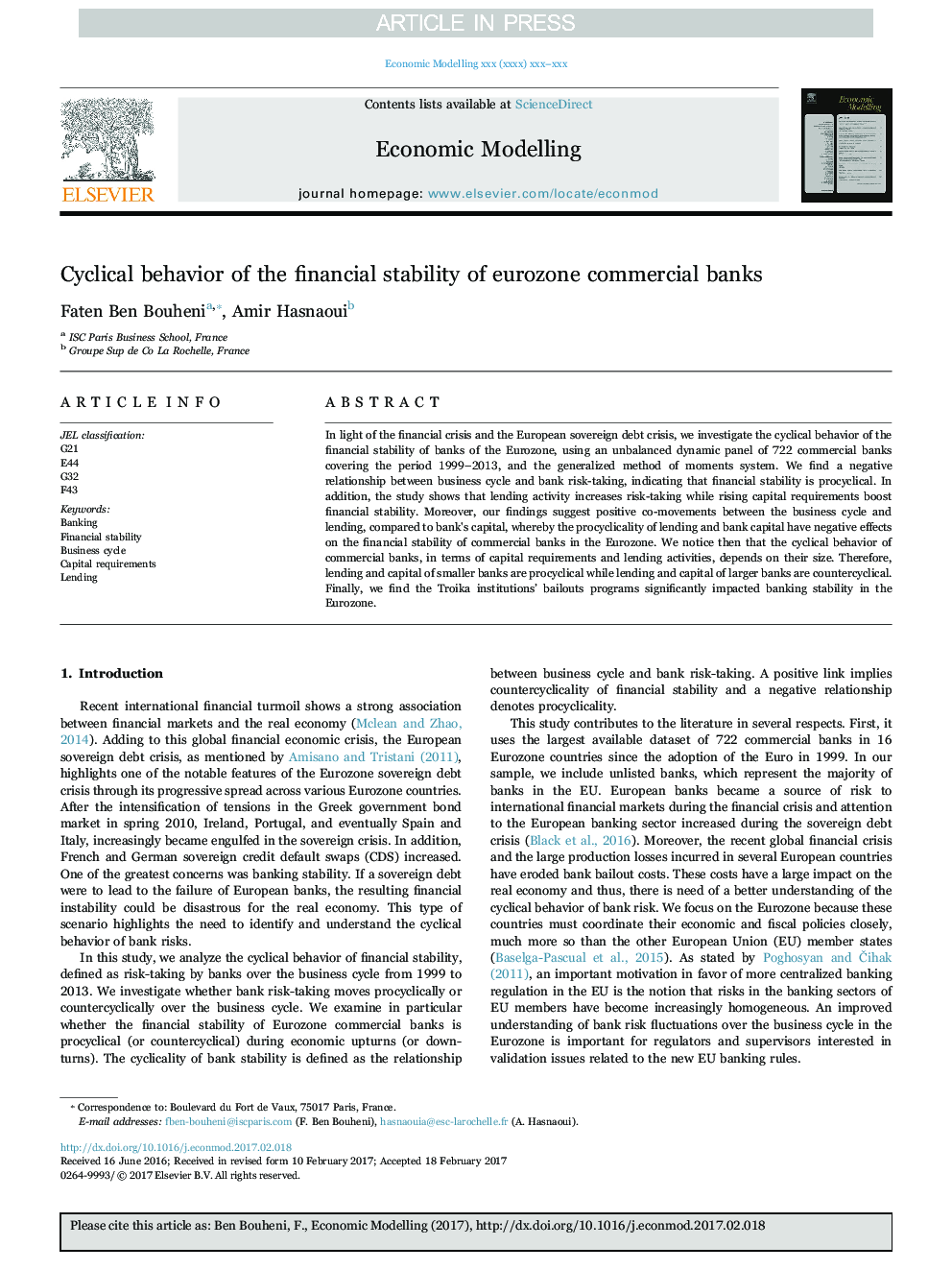| Article ID | Journal | Published Year | Pages | File Type |
|---|---|---|---|---|
| 7347833 | Economic Modelling | 2017 | 17 Pages |
Abstract
In light of the financial crisis and the European sovereign debt crisis, we investigate the cyclical behavior of the financial stability of banks of the Eurozone, using an unbalanced dynamic panel of 722 commercial banks covering the period 1999-2013, and the generalized method of moments system. We find a negative relationship between business cycle and bank risk-taking, indicating that financial stability is procyclical. In addition, the study shows that lending activity increases risk-taking while rising capital requirements boost financial stability. Moreover, our findings suggest positive co-movements between the business cycle and lending, compared to bank's capital, whereby the procyclicality of lending and bank capital have negative effects on the financial stability of commercial banks in the Eurozone. We notice then that the cyclical behavior of commercial banks, in terms of capital requirements and lending activities, depends on their size. Therefore, lending and capital of smaller banks are procyclical while lending and capital of larger banks are countercyclical. Finally, we find the Troika institutions' bailouts programs significantly impacted banking stability in the Eurozone.
Related Topics
Social Sciences and Humanities
Economics, Econometrics and Finance
Economics and Econometrics
Authors
Faten Ben Bouheni, Amir Hasnaoui,
